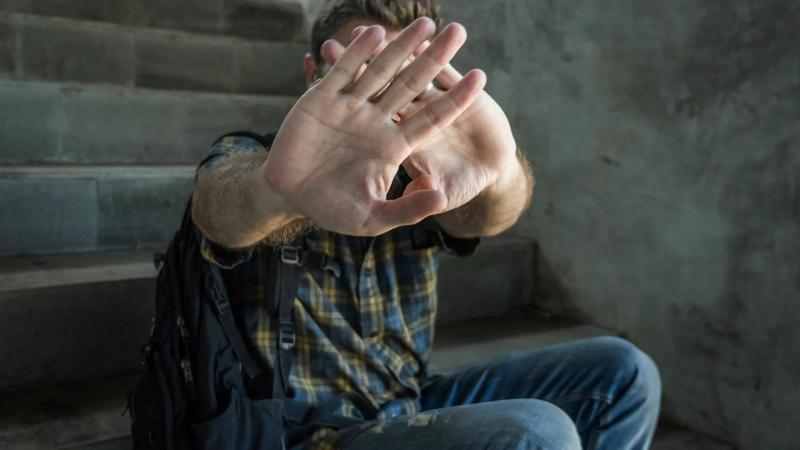An analytical study conducted by the Iraqi Ministry of Interior over five years revealed that men have experienced abuse from their wives, although to a lesser degree than the violence directed at women. Many men in Iraq who face abuse from women refuse to present themselves as victims in order to maintain their social standing, preferring to "suffer in silence" instead of reporting to the relevant authorities or their families, as women often do.
For instance, Hassan, a 40-year-old from Babil province, was expelled from his home after his wife exploited his illness to transfer his property to her name. He stated, "I was married 15 years ago and I have five children—three boys and two girls. Life was normal until I was diagnosed with cancer. As my condition worsened and threatened my life, my wife asked me to register our house in her name out of fear she wouldn’t receive her share of the inheritance, as well as my car. I agreed out of pity for her, since she is an orphan with no one to face my brothers after I am gone."
Hassan continued, "However, I then began to notice a change in the way my wife spoke to me and treated me. Her care for me diminished, and there was significant neglect regarding my health, hygiene, and food, to the extent that I was prevented from visiting my relatives. When I argued with her, she threatened divorce, so I remained silent, but she escalated to physical violence, and for rejecting her actions, she expelled me from my home."
Numerous stories similar to Hassan's exist, with varying reasons behind them. As the saying goes, "homes have secrets that only their owners know," but indeed there are men who are victims of female violence, even though accurate statistics are lacking. Men cannot disclose such issues for fear of societal backlash, given that Eastern men are traditionally seen as strong and in control. Therefore, many men suffer in silence without the ability to speak out, which necessitates awareness and education from relevant authorities to address such cases, as the negative impact affects not only the husband but all family members.
#### 14,000 Domestic Violence Cases
The Iraqi Ministry of Interior announced that approximately 14,000 domestic violence cases were recorded in the first five months of the current year, considering this number "small" compared to the country's population, which is around 44 million. Colonel Muqdad Meiri, the ministry's spokesperson, stated in a press conference attended by Shafaq News Agency, "From January 1 to May 1, 2024, we recorded more than 13,857 domestic violence cases," adding, "These are just recorded cases, some of which are genuine, others are fabricated, some are bail-related, and the rest are procedural."
He clarified, "Approximately 14,000 cases registered within five months, with the highest being physical violence." He noted that there were 3,101 cases released on bail, along with 100 judicial sentences issued against individuals convicted of domestic violence, with 1,196 individuals released, 4,400 cases resolved through reconciliation, and 1,500 cases still under processing, while there were 3,550 visits for inquiries.
Meiri described the number of domestic violence cases as "small and modest" when compared to the Iraqi population, which is estimated to be between 43 to 44 million, while emphasizing the importance and sensitivity of the issue, thus revealing these figures for transparency and to shed light on the matter.
He also reviewed an analytical study conducted by the Ministry of Interior regarding domestic violence, which took place over five years from 2019 to 2023, indicating an increase in domestic violence within society due to economic, cultural, and social changes, a decline in religious engagement, and the spread of unemployment.
He pointed out that "improper exposure" to social media has encouraged relationships outside of marriage, leading to increased cases of infidelity and noticeable drug use, both of which have elevated the number of registered domestic violence cases.
In comparing domestic violence over the aforementioned five years, the study showed that the highest incidence of domestic violence crimes occurred in Baghdad, accounting for 31% of the total, due to it being the most populous city among the provinces, while the lowest recorded incidence was in Salah al-Din at 5%.
According to the study, the number of females who experienced domestic violence was higher than that of males, with 73% of female abuse victims compared to 27% of male victims in the recorded cases. The study concluded that the most common type of violence is physical violence, comprising 43%, while the least prevalent was sexual assault, at 16%.
#### Anti-Domestic Violence Law
It is noteworthy that the Iraqi government approved a draft law to combat domestic violence in 2020, sending it to the Parliament, which has been unable to pass it due to political conflicts and concerns from influential political factions rooted in religious ideologies. These factions argue that the law is a mimicry of Western laws and grants women government protection, which they view as encouraging women's rebellion.
An official statistic issued by the Iraqi Ministry of Interior in 2023 revealed a rise in all forms of domestic violence in Iraq, with reported cases reaching 100 in the capital, Baghdad, alone.




